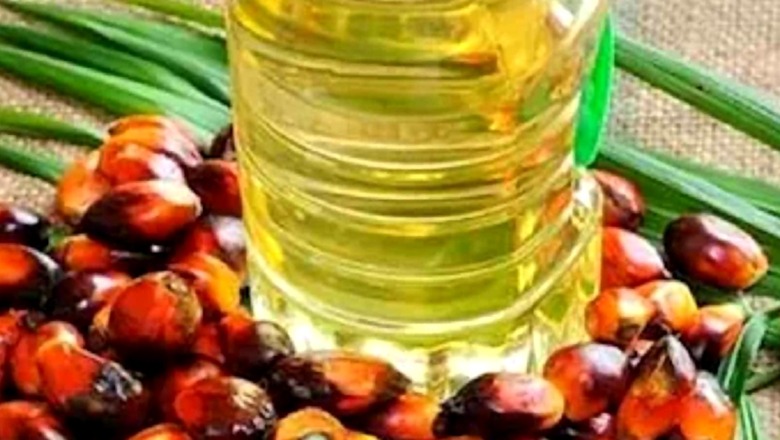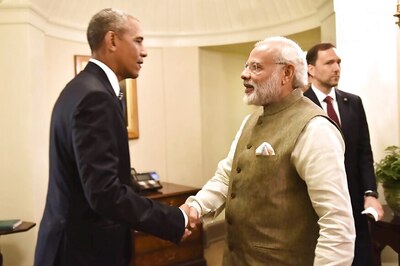
views
Even as Indonesia has banned exports of its palm oil due to a severe shortage and skyrocketing prices of edible oil, analysts and industry players feel the curb on the outbound shipments is likely to be short-lived and will be lifted soon. The Southeast Asian nation has said the ban will not be applicable to crude palm oil but will only cover refined, bleached, deodorised (RBD) palm olein.
India is the world’s largest importer of palm oil and is dependent on Indonesia and Malaysia for its demand. India imports over 13.5 million tonnes of edible oil every year, of which, 8-8.5 million tonnes (around 63 per cent) is palm oil. Now, nearly 45 per cent comes from Indonesia and the remaining from neighbouring Malaysia. India imports roughly four million tonnes of palm oil from Indonesia each year.
India Ratings and Research (Ind-Ra) said the ban is likely to affect both supply and prices of edible oils globally. The move could remove about 2 million tonnes (mnt) of palm oil supply from the global market every month, which is nearly 50 per cent of the global monthly trade volumes, leading to a rise in substitution demand for other oils and thus a widespread rise in edible oil prices.
It, however, added that it “believes that the ban is unlikely to sustain for a long duration, given that Indonesia consumes less than 40 per cent of its total palm oil production, resulting in the impact being transitory”.
Palm oil and its derivatives are used in detergents, food products, biofuels and cosmetics. These are used in the manufacturing of several daily consumption goods such as shampoos, margarine, soaps, chocolates, biscuits and noodles. So, any rise in palm oil prices will push up the input costs across these industries.
Parle Product Senior Category Head Mayank Shah said palm oil is perishable and the Indonesian exporters would eventually have to open up. Their production is much higher than the local requirement. “Hopefully, there could be some reversal in this in the next 10 days as it is not possible for them to continue with the ban for a longer time,” according to a PTI report quoting Shah.
Snacks making firm Bikano’s Chief Operating Officer Pankaj Agarwal said it was a point of worry for all the snack majors in India as palm oil is one of the important ingredients in our products. He also suggested looking at alternatives like rice bran oil and cottonseed oil, according to the PTI report.
Ind-Ra said, “The current ban is a short-term measure to bring immediate relief from the high prices and supply issues in Indonesia, and a complete ban on the export of palm oil could be difficult to sustain as the country’s domestic consumption is around 17 mnt, less than 40 per cent of its annual production of close to 45 mnt.”
As a result, it added, a sustained export ban can overwhelm the storage capacity with edible oil companies, unless they reduce procurement, which could lead to widespread crop losses. “Furthermore, palm oil export is one of Indonesia’s largest forex earners, contributing 8-10 per cent to the country’s total export earnings.”
Read all the Latest Business News here



















Comments
0 comment